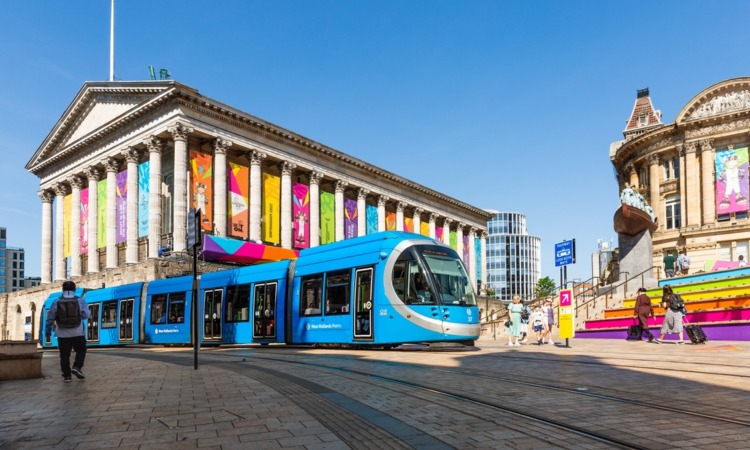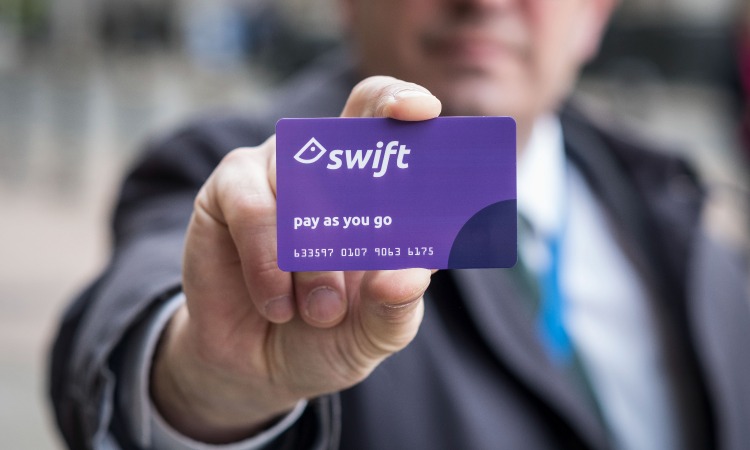Getting passengers back on-board: Transport for West Midlands’ road to recovery
- Like
- Digg
- Del
- Tumblr
- VKontakte
- Buffer
- Love This
- Odnoklassniki
- Meneame
- Blogger
- Amazon
- Yahoo Mail
- Gmail
- AOL
- Newsvine
- HackerNews
- Evernote
- MySpace
- Mail.ru
- Viadeo
- Line
- Comments
- Yummly
- SMS
- Viber
- Telegram
- Subscribe
- Skype
- Facebook Messenger
- Kakao
- LiveJournal
- Yammer
- Edgar
- Fintel
- Mix
- Instapaper
- Copy Link
Posted: 17 October 2022 | Anne Shaw - Transport for West Midlands | No comments yet
For the latest instalment of Intelligent Transport’s exclusive COVID-19 recovery series, Anne Shaw, Executive Director of Transport for West Midlands, discusses the negative impact that COVID-19 has had on the region’s public transport network, and the work that is being done by the authority to encourage passengers back on-board, including the decarbonisation of the transport network and improving access to transport for the West Midlands’ more disadvantaged communities.


In the months before the COVID-19 pandemic struck, the West Midlands had become the fastest growing economy outside of London, and that success was being felt across our public transport network.
COVID-19 was the catalyst for a huge drop in patronage levels, as schools and businesses closed, and many people started to work from home”
Prior to the pandemic, our local rail network was up to 59.1 million journeys per year, showing an annual increase; whereas, on trams, the West Midlands Metro service was up to a record eight million journeys. Although bus numbers have remained steady for a number of years, in 2019/20, the total number of bus passenger journeys recorded was 248.2 million riders.
However, the pandemic and subsequent lockdowns negatively impacted all of the progress that had been made. COVID-19 was the catalyst for a huge drop in patronage levels, as schools and businesses closed, and many people started to work from home. Our challenge now is to re-build that previous momentum and encourage people back onto public transport.
Moving forward
Now, more than ever, it is crucial that we showcase both the improvements that we are making and the innovation that we are leading. We are doing so by harnessing our passion and expertise at Transport for West Midlands (TfWM) to make sure that our public transport network is accessible, affordable, safe and reliable. We have been highly successful in securing significant investments to drive improvements and innovation. This will be used to develop our long-term delivery plan: creating a better-connected West Midlands by decarbonising the network, improving health outcomes and levelling up accessibility for our more disadvantaged communities.
Through the Future Transport Zone, we are promoting a clean and green recovery, underpinned by a developing data capability and deployment of the Mobility-as-a-Service model”
In 2019, the West Midlands was chosen to run the UK’s pathfinder Future Transport Zone (FTZ), with a Department for Transport (DfT) contribution of £22 million. This is a diverse programme focused on better understanding the local population and transport behaviours, whilst delivering new transport services that encourage modal shift and transport decarbonisation. Through the FTZ, we are promoting a clean and green recovery, underpinned by a developing data capability and deployment of the Mobility-as-a-Service (MaaS) model.
I am extremely proud of the significant progress that has been made across the programme, with 2021/22 marking a crucial period whereby projects entered their delivery phase. This has been no easy feat, especially given the pandemic, which meant changing the way that we worked and delivering our services in a completely different manner. An example of this is the UK’s first mobility credits programme, where residents were offered travel credits for surrendering their vehicle. Despite the challenging environment, 99 participants took part in the three-year scheme.
Improving access to public transport
As we strive to encourage people to use public transport post-pandemic, it is important that we make it easy and affordable. This is why, through the FTZ, we have developed our Swift smart card offering, consolidating Swift into one app and offering account-based ticketing across multiple public transport modes.


Credit: West Midlands Combined Authority
We also need to understand how public transport is being used, with data playing a huge part in the FTZ project to ensure that we can support the network moving forward. It is important that, as we look to the future, we build a data infrastructure fit for purpose and use insights to best enable sustainable behaviours in a fully integrated network. This includes the introduction of new technologies, such as the 5G-enabled road sensing network and our road digitalisation activities.
Using a data-led approach, we will target the right people where we can have the most impact and monitor the success of this through Swift”
Alongside our work on the Future Transport Zone sits our Bus Service Improvement Plan (BSIP). Awarded £88 million by the UK government, the plan includes an extensive passenger incentive programme, hoping to not only increase how frequently passengers use the bus, but also to generate new customers. Again, using a data-led approach, we will target the right people where we can have the most impact and monitor the success of this through Swift.
We are also working with operators to look at how we price tickets, ensuring that we aren’t increasing prices but instead looking at providing discounts that will have a real impact and make travelling by bus even more affordable for our customers.
It is also essential that we make public transport as easy to use as possible, and we are working on plans to simplify ticketing, with proposals to have a unified ticketing approach across all operators’ services. This takes away an element of complexity, meaning an improved experience for passengers – something that is key when we are hoping to encourage behaviour change.
Enhancing the passenger experience
What the pandemic has also given us is the opportunity to look at improving bus journeys and passenger satisfaction. So, as part of our BSIP, we are hoping to make travelling by bus an attractive choice.
We have the UK’s first all-electric bus city being delivered in Coventry, and funding for over 100 hydrogen fuel-cell buses in other areas. We know that passengers find zero-emission buses quieter, smoother and more comfortable, and their environmental credentials support our aim of ensuring that public transport is more sustainable than ever before, helping the West Midlands to achieve its #WM2041 ambition of becoming a net zero region within the next two decades.
By experimenting with the likes of demand-responsive transport in Coventry and the development and modernisation of our existing Ring and Ride service, we can provide a much greater range of journey opportunities”
Of course, we also need to ensure that our bus journeys are efficient. This is something that we are hoping to achieve, in part, with the introduction of Sprint, a rapid bus transit scheme which aims to bring tram-like levels of journey time reliability and comfort onto the bus network.
Modern lifestyles mean that people want to reach a much more diverse range of destinations than the typical fixed point-to-point journeys that bus services have traditionally catered for. This makes it challenging to encourage people to give up their cars, but we are determined to ensure that we offer a flexible service where possible. By experimenting with the likes of demand-responsive transport in Coventry and the development and modernisation of our existing Ring and Ride service, we can provide a much greater range of journey opportunities that complement the fixed-route network.


Credit: West Midlands Combined Authority – From left: David Bradford (National Express); Mayor of the West Midlands, Andy Street; Agata Litwinowicz-Soltysiak (National Express); and Councillor Jim O’Boyle (Coventry City Council).
Driving the transition to sustainable mobility
In addition, the recent Commonwealth Games in Birmingham has given us a wealth of knowledge, skills and learnings that will provide a legacy in the public transport system that we plan to capitalise on going forward.
The offer of free cycle hires during the games proved a huge success, with thousands of riders covering 49,000 miles in just 12 days. There was a huge appetite for West Midlands Cycle Hire throughout Birmingham 2022, something we are hoping to build on by ensuring that we include cycling as a preferred and valuable transport option.
Active travel will have a pivotal role to play moving forwards, by supporting our regional transport offer and providing a sustainable and eco-friendly way to keep people moving”
Active travel will have a pivotal role to play moving forwards, by supporting our regional transport offer and providing a sustainable and eco-friendly way to keep people moving across the West Midlands.
We really do want public transport to be the travel option of choice. During the Commonwealth Games, we saw a multimodal uplift as we strengthened services to support the inevitable rise in demand generated by the sporting festival. We know that, during Birmingham 2022, there were 3,006 new or returning concessionary Swift customers, making 8,729 journeys.
This has given us real food for thought and, as we move forward, we are hoping to build on the legacy of the Commonwealth Games transport operation. What we do know is that if we provide accessible, affordable, safe and reliable transport, people will use it.


Related topics
5G & Transport Communications, Accessibility, Air Quality, Alternative Power, COVID-19, Getting Passengers Back On-Board: Transport's Road to Recovery Series, Micro-mobility, Mobility Services, Multimodality, On-Demand Transport, Passenger Experience, Public Transport, Sustainable Urban Transport, Ticketing & Payments
Related modes
Bikes & Scooters, Bus & Coach
Related cities
Birmingham, Coventry
Related countries
United Kingdom
Related organisations
Department for Transport (DfT), Transport for the West Midlands (TfWM), UK Government
Related people
Anne Shaw







